
FINANCES AND
OPERATIONS
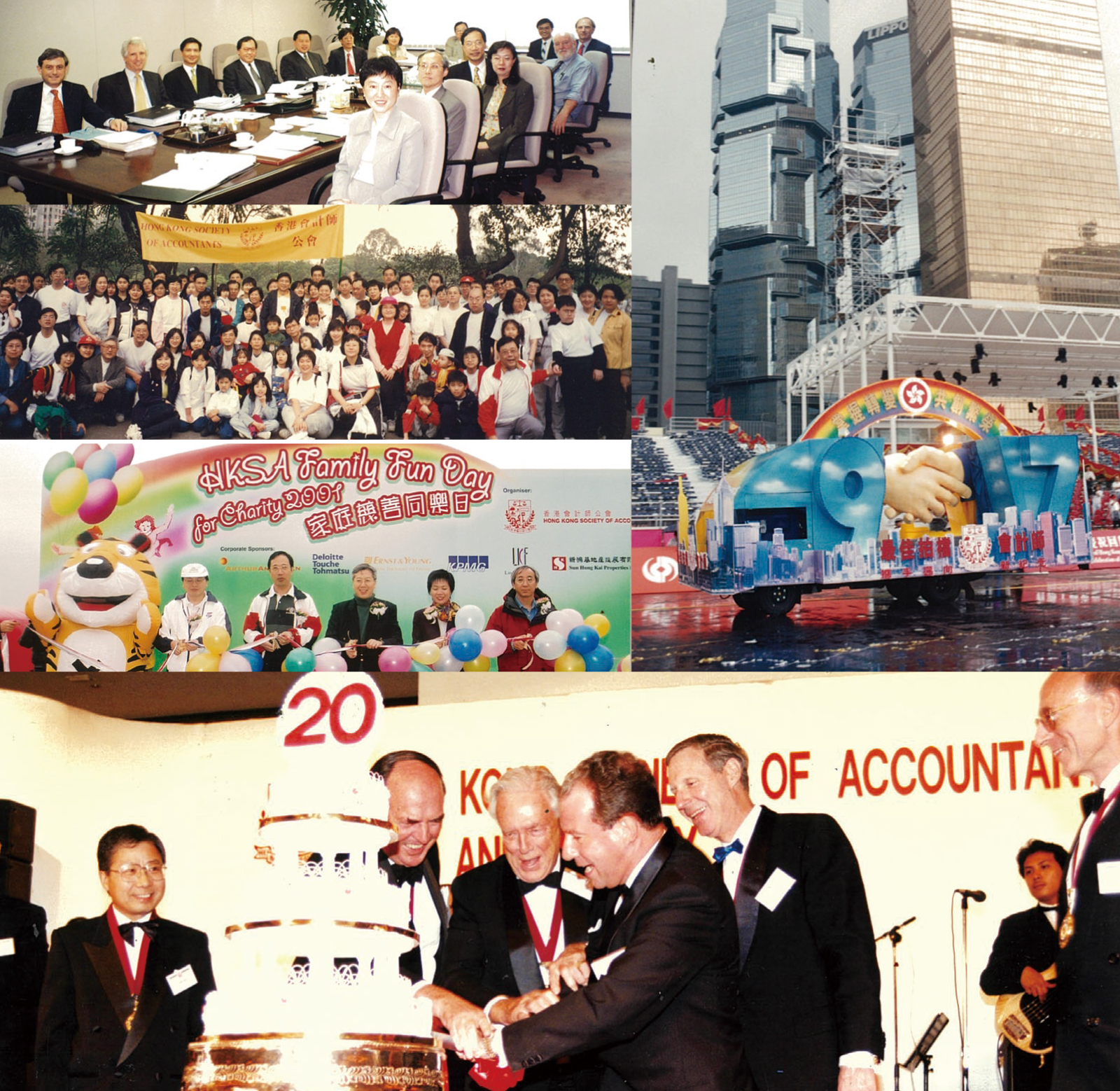
The efficient and financially prudent operation of the Institute ensure that it is able to deliver the services to members, while performing its statutory roles as an organization acting in the public interest.
Finances
The Institute has been in a deficit situation for a few years. By adopting various re-engineering initiatives, the financial viability continued to improve. The financial results in this year is returning to a surplus of HK$54 million (2022: HK$13 million) for a second consecutive year after a break-even in 2022. Cost saving measures, non-recurrent items and additional income achieved by re-engineering initiatives were the key contributors for the resulting surplus, which was further supported by lower staff costs.
Income
Subscriptions and fees are the key income sources of the Institute. With the regulatory functions of the Institute transferred to the Accounting and Financial Reporting Council from October 2022 onwards, the Institute no longer collects fees previously received from practice units and practising certificate holders, which represented one-third of the annual subscriptions and fees. As such, the subscriptions and fees for this financial year dropped to HK$144 million representing the impact of half a year since the change (2022: HK$156 million). The decrease was slightly alleviated by the membership fee adjustment in 2023.
Beyond subscriptions and fees, fees for examinations, and seminar and courses represent two major income sources for the Institute. The income from examinations reduced to HK$57 million (2022: HK$66 million), mainly due to lower enrolment numbers as a result of the drop in student numbers. The income from seminar and courses remained stable at HK$15 million (2022: HK$15 million).
Previously, the Institute’s regulatory role contributed income through one-off cost recovery and disciplinary fines from regulatory cases. Income for this financial year was only HK$3 million (2022: HK$21 million) and will cease shortly as remaining disciplinary cases in progress are completed over the coming months.
Expenses
Total expenses dropped to HK$191 million (2022: HK$255 million). The Institute experienced a reduction in headcount and the subsequent staff costs after the regulatory reform. Like many organizations, the Institute also experienced high staff turnover during the year attributed to an improved employment market. The employee benefits cost incurred in this financial year was HK$104 million (2022: HK$141 million). In addition to non-recurrent savings on staff costs, cost saving measures on key segments and lower examination enrolment also contributed to the fall in overall expenses.
Financial position
The Institute has a net assets balance of HK$461 million (2022: HK$225 million), with HK$175 million representing the difference between the carrying amount and fair value of a portion of owner-occupied property that was transferred from fixed assets to investment property during the year. Benefitting from rising interest rates and prudent working capital management, total cash balance was maintained at HK$248 million, up from HK$206 million.
Looking ahead, the Institute faces long term challenges with the loss of revenue from the regulatory functions as well as a shrinkage in the Qualification Programme (QP) student population. To maintain its functions and activities, various measures have been identified, including further membership fee adjustments, performance improvements to key segments of QP and to the financial viability of key segments of continuing professional development (CPD) offerings to achieve breakeven in the ensuing years. By doing so, we intend to improve the Institute’s financial sustainability and secure a solid platform to better serve members and the profession.
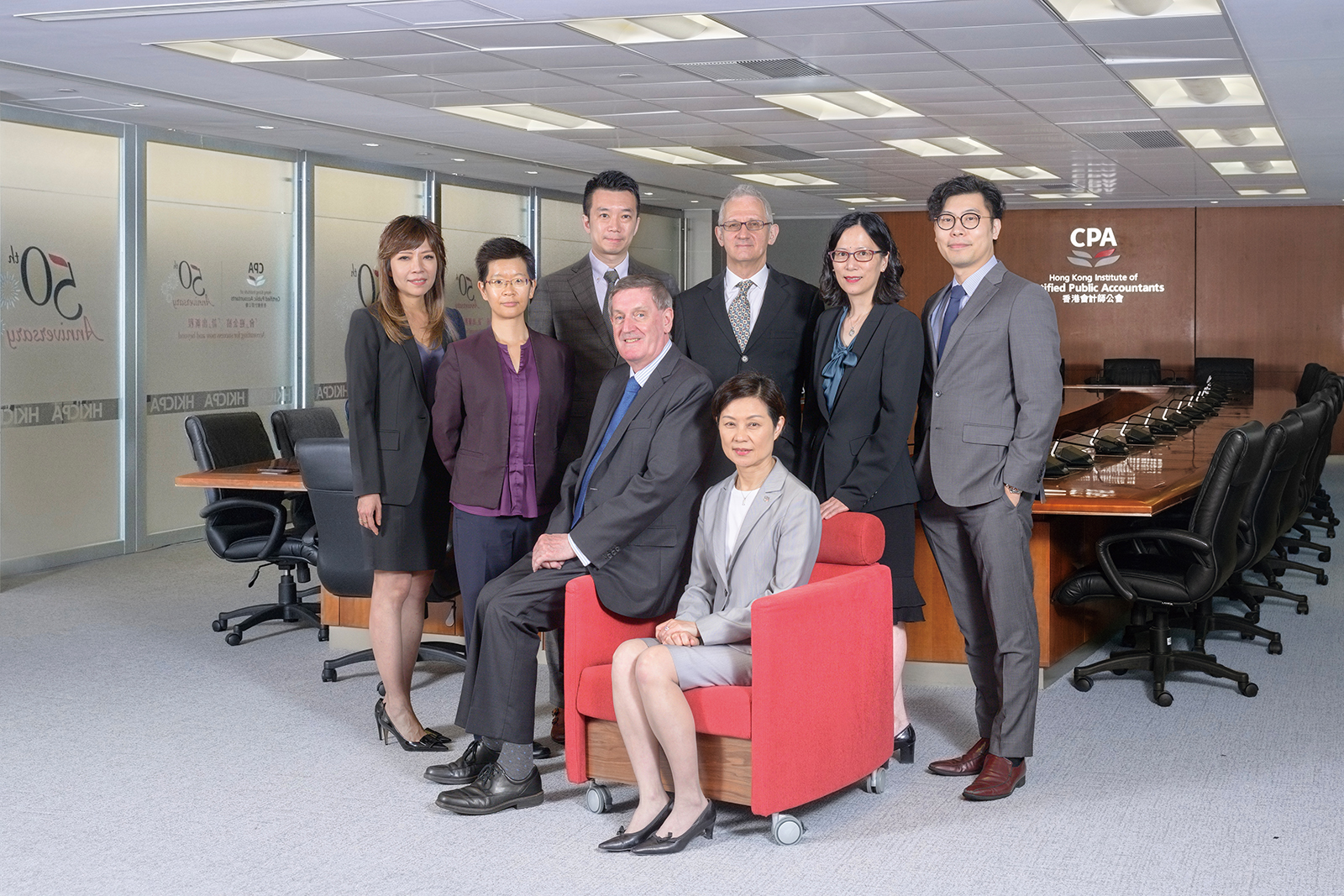
MANAGEMENT TEAM
Chief Executive & Registrar
01 Margaret W.S. Chan
Directors
02 Chris Joy
03 Peter Tisman (Advocacy and Practice Development)
04 Rebecca Tam (Corporate Communications)
05 Kit Wong (Education and Training)
06 Herbert Yung (Member Engagement)
07 Elaine Chung (Membership and Admission)
08 Cecilia Kwei (Standard Setting)
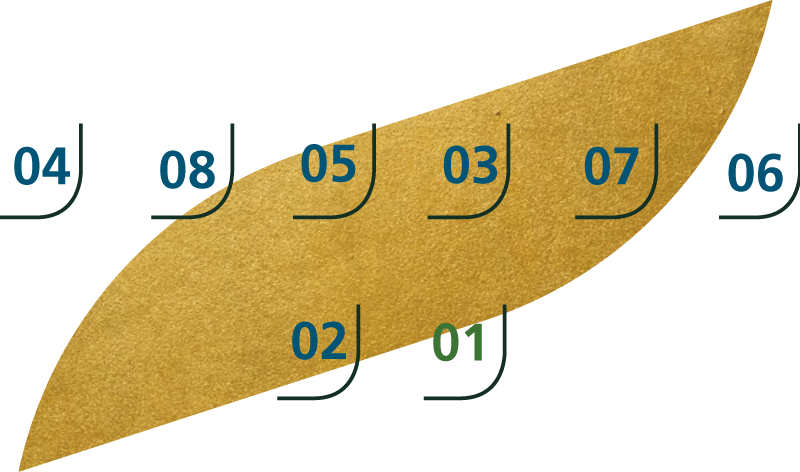
Staffing
Institute’s management
The Institute’s staff play vital roles in ensuring its efficient operations. The Chief Executive together with a management team of a legal counsel and seven directors, lead a group of 160 staff.
Community engagement
Throughout the financial year, the Institute participated in Dress Casual Day and Skip Lunch Day organized by the Community Chest. About 25 staff members joined to show their support for the betterment of our local community. Additionally, the Institute offered staff members moon cakes made by Gingko House, a social enterprise that provides employment opportunities to senior citizens in the community. All these community engagement activities make staff members feel good about supporting good causes and appreciate the importance of giving back to the community.
KEY STAFFING FIGURES — AGE AND CAPACITY

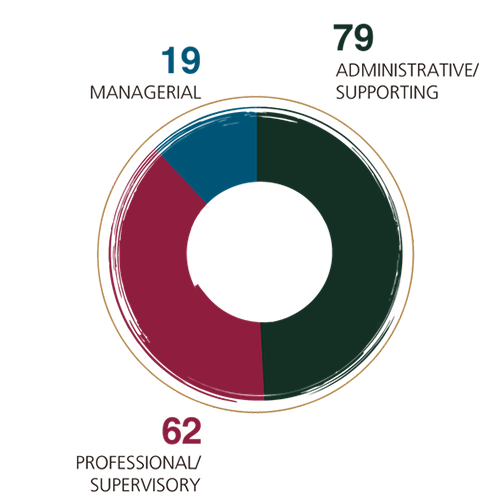
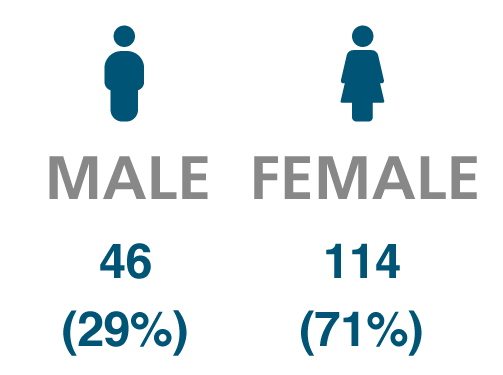
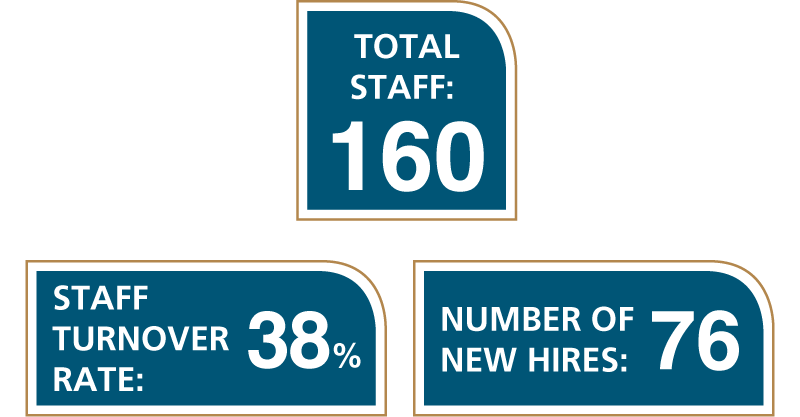
Staff well-being, engagement and communications
The Institute considers the well-being of staff members a priority. It provides staff members with group medical insurance coverage, long-term disability, and life insurance programmes. Moreover, the Institute offers employee assistance programmes that provide support to staff members and their families by giving them access to independent professionals who can help them address issues affecting their well-being. To further promote well-being, the Institute organized a series of webinars throughout the year, including health management of long COVID and stress management at work.
The Institute places great emphasis on staff engagement. The Institute’s internal core values are instilled in new staff members during their orientation programme. The Institute continues its regular communication with staff members via the Chief Executive’s emails and a dedicated staff information hub. In the wake of the COVID pandemic, the Institute has organized various staff activities, such as office parties, to promote a strong sense of cohesion and engagement.
The Institute also maintains regular communication with staff members via quarterly newsletters, and a dedicated staff information hub. The Institute offers long service awards to show appreciation to staff members for their service. In the financial year, eight staff members received an award for their five years of service, one staff member for 10 years, four staff members for 15 years, and three staff members for 25 years.
Training and development
The Institute recognizes the importance of continuous learning for the career advancement of staff members. According to professional requirements, staff members are encouraged to participate in external and internal training courses. About 350 enrolments for 147 external and CPD courses were recorded in the financial year.